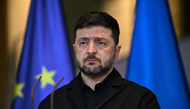FRET-NEUTRALITY: The Politics of the FCC’s Repeal

Justin Kim Campbell Hall 11th Grade

President Donald Trump chose Republican Ajit Pai of the US Federal Communications Commission to serve as its chairman at the beginning of his term. On December 14, 2017, the FCC voted for the controversial proposal by Pai to repeal net-neutrality. In the midst of both its protests and commends, the issue of net-neutrality dwells deep into American politics much more than it seems. Apart from the Trump administration, various Republicans have conveyed their dissatisfaction with the lenient protections of net-neutrality during the Obama-era. In 2015, Texas senator Ted Cruz referred to net-neutrality as “Obamacare for the Internet” while Kentucky senator Rand Paul called it “a direct attack on the freedom of information.”
However, large majorities of Americans think contrary to the previous sentiments. According to a survey from the University of Maryland, 3 out of 4 Republicans actually oppose the government’s decision to repeal net-neutrality for Internet Service Providers. Another study from the university’s Program for Public Consultation and Voice of the People, a nonpartisan polling organization, found that 83 percent of Americans do not approve of the FCC’s new regulations. Only 16 percent of Americans said that they did. Several Democratic politicians highly disagree with the repeal as well. Minority Leader of the US House of Representatives Nancy Pelosi tweeted: “Net neutrality is central to saving families money, creating good-paying jobs, and empowering small businesses.” Senator Dianne Feinstein also tweeted that the repeal of net-neutrality “is the latest decision by the Trump administration in an effort to systematically repeal and destroy EVERYTHING we achieved over the last eight years.”
But what is our president’s motive in net-neutrality’s repeal? Although net-neutrality advocates believed that Trump would be more friendly once in office, a tweet in 2014 states the opposite. Trump claimed that net neutrality would somehow target conservative media, due to his opposition to the merging of AT&T and Time Warner during his campaign. Other than this, the president himself has not made any other formal statements regarding the FCC’s decision. President Obama’s net-neutrality rules classified telecommunications companies like Verizon and AT&T as public utilities, like water or electricity companies.
This barred Internet providers from selling faster delivery, slowing speeds for certain videos or content, and discriminating against legal material. However, Ajit Pai advocated for those rules to be vacated. Many Republicans in politics now side with Internet providers, who say more regulations dissuaded them from providing better Internet. What is clear in the political commotion of net-neutrality’s repeal is that the Internet will soon be what Pai calls a “light-touch, market-based framework.”
<Justin Kim Campbell Hall 11th Grade>
스마터리빙
more [ 건강]
[ 건강]이제 혈관 건강도 챙기자!
[현대해운]우리 눈에 보이지 않기 때문에 혈관 건강을 챙기는 것은 결코 쉽지 않은데요. 여러분은 혈관 건강을 유지하기 위해 어떤 노력을 하시나요?
 [ 건강]
[ 건강]내 몸이 건강해지는 과일궁합
 [ 라이프]
[ 라이프]벌레야 물럿거라! 천연 해충제 만들기
 [ 건강]
[ 건강]혈압 낮추는데 좋은 식품
[현대해운]혈관 건강은 주로 노화가 진행되면서 지켜야 할 문제라고 인식되어 왔습니다. 최근 생활 패턴과 식생활의 변화로 혈관의 노화 진행이 빨라지고
사람·사람들
more
[송년행사 화보] “한 해를 마무리하며… 화기애애한 송년의 순간들”
LA 러너스클럽LA 러너스클럽(회장 김두병)은 13일 작가의 집에서 80여명의 회원과 가족이 참석한 가운데 송년회를 마쳤다. 2007년 창립된…

[송년행사 화보] “웃음과 감사 가득 ‘훈훈’… 함께해서 행복”
한국학교총연합회미주한국학교총연합회(회장 이영숙)가 주최한 제43회 장기 근속교사 포상 및 송년의 밤 행사가 140여명의 교사들이 참석한 가운데…
[송년행사 화보] “친구야 반갑다… 선배님들 모두…
경남중고경남중·고등학교 남가주 동창회(회장 예해덕)는 지난 6일 송년회를 열고 동문 및 가족 60여 명이 참석한 가운데 끈끈한 우정을 확인했다…
송년행사 게시판
월남전 참전자회월남전 참전자회 캘리포니아지회(회장 김종식)가 오는 17일(수) 오전 11시 LA 한인타운 해피음악원(2426 W. 8th St…
[송년행사 화보] “올 한 해 보람 가득… 내년에…
서강대남가주 서강대 동문회(회장 이정은·이사장 이찬근)의 2025년 정기총회 및 송년의 밤 행사가 지난 6일 웨스트리지 골프클럽에서 열렸다. …
많이 본 기사
- 출퇴근길에 갇힌 한인들… ‘시간·건강·돈’ 삼중고
- 취임 1년 앞두고 기세 꺾인 트럼프
- 캘리포니아 플라스틱백 퇴출 앞두고… 대형 체인, 종이봉투로 속속 전환
- 신년 전야 남가주 폭탄 테러 모의… 4명 체포
- 노로바이러스 변종 확산 어린이·고령자 감염 주의
- “뜨거운 음료 사 와서, 후배 때려”..팝핀현준 ‘폭행 미투’ 터졌다
- 연말연시 여행객 사상 최대 전망
- 한인 팔레스타인 활동가 체포
- 에어프레미아, 연말 할인 프로모션
- 시드니 총격 테러 IS 연관 수사확대
- ‘만취 실신’ 라쿤 알고보니 ‘상습범’
- LAPD 증원… 시장과 시의회 정면충돌
- ‘주님 보시기에 부끄럽지 않은 삶이길’… 11학년 강지은 특별상
- 착한 일만 하면 천국 간다?… 교인 상당수 기독교 교리 배치 믿음
- “피고소만 5건” 박나래 ‘주사이모’ 고발 건, 검찰서 경찰로 이첩..왜?
- ‘해리가 샐리를 만났을 때’ 감독 부부 피살
- 중일 갈등… 일본 54년 만에 ‘판다 제로’
- 이종호측 “김건희에 3억 수표 전달”…법정서 돌발 주장
- 뉴스타부동산그룹, 창립 37주년 송년모임·시상식 성료
- “내 한국인 남편, 40일 넘게 개처… 1
- 전원주 “숙대 졸업 후 앞치마 입는 연기만..부끄러웠다” 고백
- 젤렌스키 “푸틴이 종전안 거부하면 미국에 장거리 무기 요청”
- 제트블루 여객기 ‘아찔’ 공군 급유기와 충돌할뻔
- 젤렌스키 ‘나토가입 포기’ 시사 “확실한 안전 보장 있어야”
- 칠레도 휩쓴 우파 물결… ‘트럼프 닮은꼴’ 카스트 당선
- ‘128개 홈디포 매장서 319건 절도’ 플러싱 기반 전문절도단 일망타진
- 박미선, 유방암 투병 중 ‘日 지진’ 걱정.. “건강하셔야 한다”
- 테슬라 주가 올들어 최고…사상 최고치도 연내 경신하나
- MD 체육회장 입후보 등록 시작
- 은퇴 이후를 지탱하는 소득 구조의 과제
- 뉴욕 센트럴파크에 ‘뷔 벤치’ 생겼다
- 로봇청소기 ‘아이로봇’ 파산보호 신청
- 한국 3월 A매치 상대 한 팀 사실상 확정... 오스트리아 감독 ‘평가전 인정’
- 박나래 ‘링거·주사 이모’ 난리통 속 결국..MBC ‘팜유트립’ 제작 무산
- ‘올해의 인물’에 AI ‘설계자들’ 타임 선정… 찰리 커크 제외
- 트럼프, MAGA 내부서도 식나… ‘매우 지지’ 8개월새 8%p 하락
- 황반변성=노인병? 아니었다… 2030 시력 위협하는 뜻밖의 원인
- 버지니아, 도로 상태‘전국 2위’…MD 13위·1위 GA
- 백화점서 아기 기저귀 갈던 엄마 40대 정신질환자에 흉기 피습
- 尹 ‘체포방해 혐의’ 내달 16일 선고…4개 재판 중 첫 결론
- 상업용 대출의 여러 변수
- 대기천 워싱턴주 강타 역대급 홍수 ...워싱턴주 서부 이례적인 대기천 폭우로 역대급 홍수 발생
- [존청 변호사의 “경제·법률 핫이슈”] 세금으로 사라질 돈… ‘가족 재단’으로 유산 만든다
- 건축회사 누보하우스
- [송년행사 화보] “한 해를 마무리하며… 화기애애한 송년의 순간들”
- 치아 교정 똑같이 받아도… 50대 아빠가 엄마보다 만족, 왜
- 워싱턴 지역 올 겨울 두 번째 눈
- 피로 얼룩진 주말…지구촌 곳곳 총격사건 잇달아
- ‘美정부가 대주주’ 인텔, 대관담당으로 트럼프 보좌관 영입
- 모기지 금리, 내년에도 인하 ‘찔끔’ 전망
1/5지식톡

-
 ☝️해외에서도 가능한 한국어 선생님…
0
☝️해외에서도 가능한 한국어 선생님…
0이 영상 하나면 충분합니다!♥️상담신청문의♥️☝️ 문의 폭주로 '선착순 상담'만 진행합니다.☎️ : 02-6213-9094✨카카오톡ID : @GOODEDU77 (@골뱅이 꼭 붙여주셔야합니다…
-
 테슬라 자동차 시트커버 장착
0
테슬라 자동차 시트커버 장착
0테슬라 시트커버, 사놓고 아직 못 씌우셨죠?장착이 생각보다 쉽지 않습니다.20년 경력 전문가에게 맡기세요 — 깔끔하고 딱 맞게 장착해드립니다!장착비용:앞좌석: $40뒷좌석: $60앞·뒷좌석 …
-
 식당용 부탄가스
0
식당용 부탄가스
0식당용 부탄가스 홀세일 합니다 로스앤젤레스 다운타운 픽업 가능 안녕 하세요?강아지 & 고양이 모든 애완동물 / 반려동물 식품 & 모든 애완동물/반려동물 관련 제품들 전문적으로 홀세일/취급하는 회사 입니다 100% …
-
 ACSL 국제 컴퓨터 과학 대회, …
0
ACSL 국제 컴퓨터 과학 대회, …
0웹사이트 : www.eduspot.co.kr 카카오톡 상담하기 : https://pf.kakao.com/_BEQWxb블로그 : https://blog.naver.com/eduspotmain안녕하세요, 에듀스팟입니다…
-
 바디프렌드 안마의자 창고 리퍼브 세…
0
바디프렌드 안마의자 창고 리퍼브 세…
0거의 새제품급 리퍼브 안마의자 대방출 한다고 합니다!8월 23일(토)…24일(일) 단 이틀!특가 판매가Famille: $500 ~ $1,000Falcon: $1,500 ~ $2,500픽업 & 배송직접 픽업 가능LA…
케이타운 1번가
오피니언
 노세희 부국장대우·사회부장
노세희 부국장대우·사회부장 커뮤니티 재단과 한인사회의 미래
 민경훈 논설위원
민경훈 논설위원햄닛과 햄릿, 그 죽음에 대한 명상
 한형석 사회부 부장대우
한형석 사회부 부장대우 연말, 사기범들의 최대 성수기
 정유환 수필가
정유환 수필가 [화요칼럼] 크리스마스 트리의 추억
 이영창 / 한국일보
이영창 / 한국일보 [지평선] 대통령의 ‘디테일’ 욕심
 이생진
이생진 ‘벌레 먹은 나뭇잎’
 옥세철 논설위원
옥세철 논설위원오늘의 베네수엘라가 내일의 동아시아국가…

퇴조의 핑크 타이드
 조지 F·윌 워싱턴포스트 칼럼니스트
조지 F·윌 워싱턴포스트 칼럼니스트 [조지 F. 윌 칼럼] 대통령의 전쟁수행권
1/3지사별 뉴스

피로 얼룩진 주말…지구촌 곳곳 총격사건 잇달아
지난 주말 동안 미동부 아이비리그 브라운대학에서 총격 사건이 발생, 최소 2명이 사망하고 9명이 부상한데 이어 호주 시드니에서는 사망자 16…
뉴욕·뉴저지 등 19개 주정부 H-1B비자‘10만달러 수수료’소송

워싱턴 한국학교협의회, 제37회 교사의 밤
재미한국학교 워싱턴지역협의회(회장 정광미)가 13일 ‘제 37회 교사의 밤’을 개최, 한 해 동안 헌신한 교사들의 노고를 위로했다. 올해 최우…
안수화 회장 연임 확정

트럼프, 합성마약 펜타닐을 ‘대량살상무기’로 지정
도널드 트럼프 대통령은 15일 신종 합성마약으로 미국에 대량 유입된 펜타닐을 ‘대량살상무기’(WMD)로 지정했다.트럼프 대통령은 이날 백악관에…
‘우미노시즈쿠 후코이단’ 감사 이벤트

오늘 하루 이 창 열지 않음 닫기 



















































.png)


댓글 안에 당신의 성숙함도 담아 주세요.
'오늘의 한마디'는 기사에 대하여 자신의 생각을 말하고 남의 생각을 들으며 서로 다양한 의견을 나누는 공간입니다. 그러나 간혹 불건전한 내용을 올리시는 분들이 계셔서 건전한 인터넷문화 정착을 위해 아래와 같은 운영원칙을 적용합니다.
자체 모니터링을 통해 아래에 해당하는 내용이 포함된 댓글이 발견되면 예고없이 삭제 조치를 하겠습니다.
불건전한 댓글을 올리거나, 이름에 비속어 및 상대방의 불쾌감을 주는 단어를 사용, 유명인 또는 특정 일반인을 사칭하는 경우 이용에 대한 차단 제재를 받을 수 있습니다. 차단될 경우, 일주일간 댓글을 달수 없게 됩니다.
명예훼손, 개인정보 유출, 욕설 등 법률에 위반되는 댓글은 관계 법령에 의거 민형사상 처벌을 받을 수 있으니 이용에 주의를 부탁드립니다.
Close
x